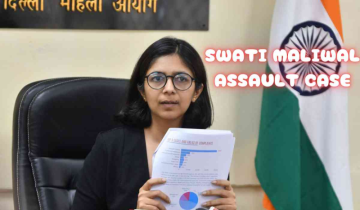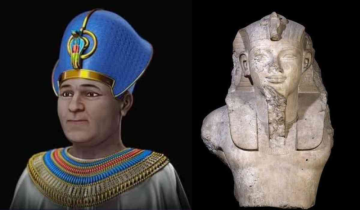The Allahabad High Court on Wednesday in the Gyanvapi mosque dispute case directed the Varanasi district judge to send photocopies of all documents related to Hindu women's plea to it by October 21, thus adjourning the hearing for the day. The court was hearing a plea moved by the Gyanvapi Masjid Committee challenging a Varanasi Court order in favour of the maintainability of the Hindu side’s suit.
The Gyanvapi Mosque is located in Banaras, Uttar Pradesh, India. It was constructed by Aurangzeb in 1669 upon the demolition of an older Lord Shiva temple. The facade was modelled partially on the Taj Mahal's entry and the plinth of the temple was left untouched to serve as a courtyard of the mosque.
It was initially being heard by the Supreme Court but later on, was transferred to the Varanasi District Court on the premise that a senior and experienced judicial officer of Uttar Pradesh Higher Judicial Service must handle the case. Underlining that Hindu groups are not barred by the 1991 Places of Worship Act, the Varanasi District Court had said that the suits seeking the right to worship inside the Gyanvapi mosque are maintainable.

The Muslim side has argued that this petition is not maintainable as the Places of worship Act 1991 prohibits conversion of any place of worship and mandates the maintenance of the religious character of any place of worship. The Allahabad HC was to hear on Wednesday a petition of the Anjuman Intezamia Masjid Committee that manages the mosque, challenging the Varanasi district court's September 12 order rejecting its application against the maintainability of a plea seeking daily worship of Hindu deities. The original suit had sought restoration of the ancient Kashi Vishwanath temple at the site where the Gyanvapi Mosque currently stands. The petitioners had said the mosque was a part of the temple.
The High Court recently granted 10 more days to the Archaeological Survey of India (ASI) as the last opportunity to file a counter affidavit in the case too. The Hindu side had claimed that a 'Shivling' was found in the premises near the 'wazukhana' during the videography survey of the mosque premises. However, the Muslim side said that the structure found was a 'fountain'. The Hindu side had then submitted an application on September 22 that sought a carbon dating of the object they claimed to be 'Shivling'.
This case will basically determine whether a group of Hindi women can pray daily to the visible and invisible gods inside the mosque complex. The Varanasi court has made it clear that the demand is not to convert the mosque into a temple but to allow all Hindus to visit the monument and offer prayers. Several parties are giving out their opinions, for and against this case but no final decision has been made yet. The Varanasi court last heard the case on 29th September 2022, but no final verdict is out yet.
© Vygr Media Private Limited 2022. All Rights Reserved.








